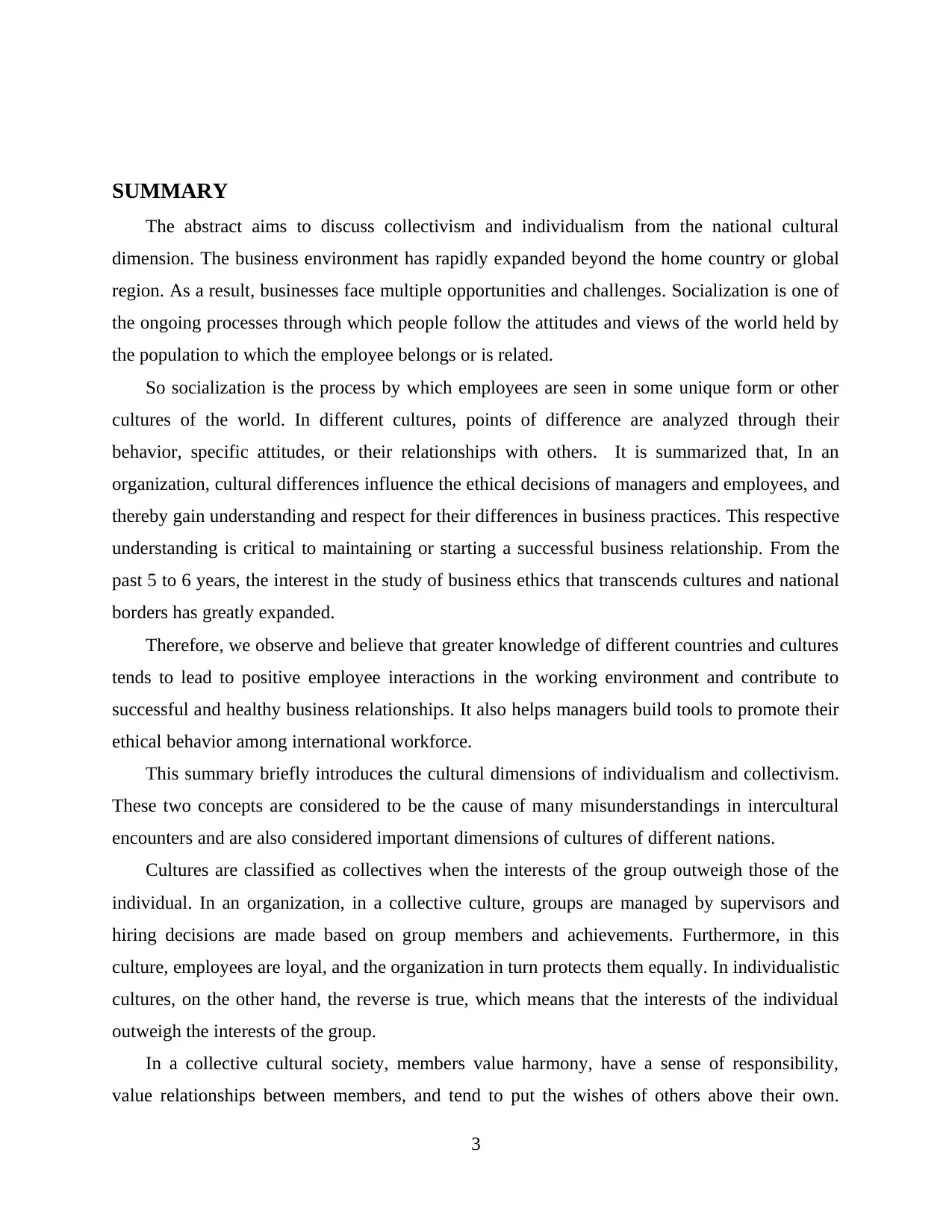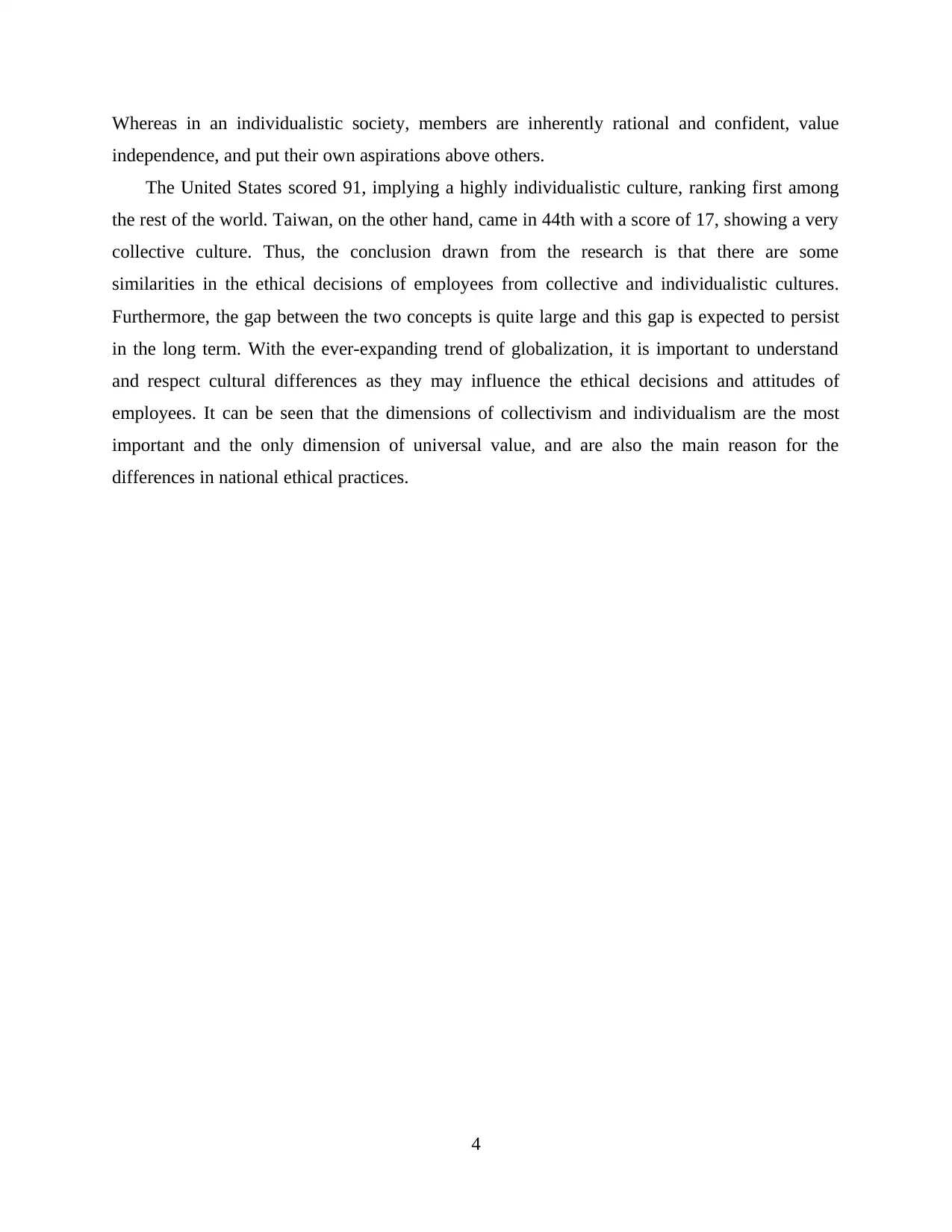Individualism and Collectivism: A Summary of Cultural Dimensions
VerifiedAdded on 2023/06/13
|4
|592
|199
Summary
AI Summary
This summary explores the concepts of individualism and collectivism as national cultural dimensions impacting the global business environment. It highlights how socialization and cultural differences influence ethical decisions in organizations. Collectivist cultures prioritize group interests, foster loyalty, and value harmony, while individualistic cultures emphasize individual aspirations and independence. The summary contrasts the high individualism score of the United States with the collectivist culture of Taiwan, noting the potential for misunderstandings in intercultural encounters. Ultimately, understanding and respecting these cultural differences is crucial for maintaining successful business relationships and promoting ethical behavior within international workforces. The analysis suggests that the gap between individualistic and collectivist approaches may persist, underscoring the importance of cultural awareness in an increasingly globalized world. Desklib provides students access to similar solved assignments.
1 out of 4











![[object Object]](/_next/static/media/star-bottom.7253800d.svg)